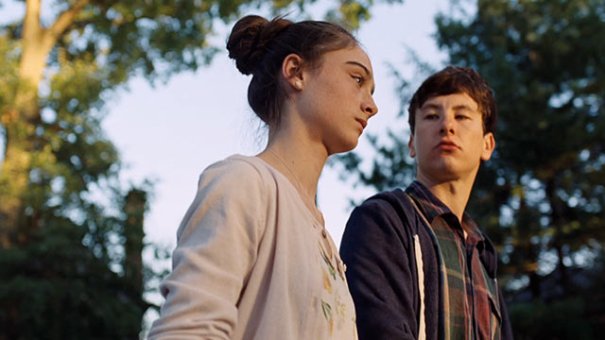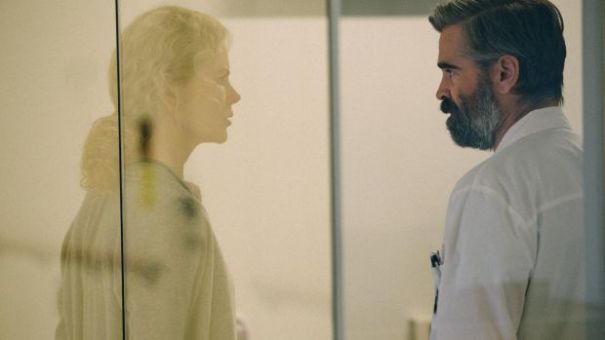
There’s nothing better than watching a film made by a director you absolutely love and have it meet every expectation. It becomes even more enjoyable when the tonal frequency of the filmmaker is compatible with yours. It’s a pure coincidence, of course – no great filmmaker remains great by catering to an audience – which is what makes it special.
Since his breakout film, Dogtooth, Yorgos Lanthimos has been relentless in his personal translation of the world around us: The mundane attributes of a typical human society stretched to lengths and limits and turned upside down so that even the most vanilla of daily moments are revealed as absurdly ritualistic. The bare bones of this concept are not unique… David Lynch did it with American suburbia, Charlie Kauffman with industry and media, and Roy Andersson with middle-class Norwegians. What sets Lanthimos apart is that his characters are not mere pawns of a greater society, they are the society. While the other filmmakers play with characters in a world bigger and more comprehensive than they can really wrap their heads around (Blue Velvet, Being John Malkovich, and A Bird Sat on a Branch Reflecting on Existence all feature people who are naive and alien to the world they have entered), Lanthimos’s central characters build the world and make its rules themselves.

The Killing of a Sacred Deer, which can be considered Lanthimos’s first dive into genre cinema, plays on the same sort of premise set by James Wan’s Saw series. A sociopathic teenager named Martin (Barry Keoghan, who deserves every award for this) sets the rules for a game wherein the central character, a surgeon named Steven, (Colin Farrell) must make an unthinkable sacrifice to save himself and others. If he doesn’t play by these rules, then everyone dies. Unlike Jigsaw, Martin is not presented as a criminal mastermind, but as a timid, bumbling pubescent teen. His actions are motivated purely by isolated revenge and not some greater worldly moral postulate. As Martin says, “this is the only thing I can think of that comes close to justice.”
Martin is a world-builder and very much in charge of everything that happens in the film. Much like the Father in Dogtooth who raises his children on strange and false fears about the world, or the Hotel Employees in The Lobster who set a timer on single people finding a mate, everyone else is at his whim. The Greek mythological allegory going on in the film is Iphigenia in Aulis, which is a tale of events sparked by Agamemnon killing one of Artemis’s sacred deer. This God-like stature of Martin is prevalent in the film, by the fact that his methodologies for enacting this vengeance are never discussed, and how he gets around is never shown. His phantom presence, over time, clouds over Steven’s family to a suffocating degree.

Despite this, Lanthimos’s villains can never be too self-serious. They are still manifested as humans, and like all humans in Lanthimos’s world, they are also uncomfortably funny. One of the most terrifyingly giddy moments in the film is when Martin showcases how much he believes his own words as he bites off a chunk of Steven’s arm, and then proceeds to do the same to his own arm. In the most monotone voice possible, mouth full of blood, he drools out, “See? It’s metaphorical.” This can be expected from a filmmaker who revels in the fact that no moment can be completely normal, but is always a direct representation of how numb we are to the absurdity of societal norms and our own thought processes. Pushing this even further is that outside of the genre tropes of a typical horror film, everything else is filled with Lanthimos’s standard ingredients, namely his dialogues which make every phrase sound like its being recited by robots attempting to mimic human conversation.
The mix is discomfiting, and that’s really what it aims to be. In the end, all of Lanthimos’s films are about things humans feel often. His darker and more sadistic tone with this film doesn’t change the fact that it’s a movie about loss and our urge to get back at those who wronged us. But even in the face of death and murder his characters can’t help but dive into whimsy. When first confronted with his impossible situation, Steven bargains with his mistakes by saying “A surgeon can never kill a patient. An anesthesiologist can kill a patient, but a surgeon never can.” It’s a hopeless tactic of ill-conceived logic, but when we’re pushed to the brink of doom, we’ll say anything to keep ourselves going. In Lanthimos’s world, our fears and actions and words become parts of a Greek tragicomedy. In every character, we see something about ourselves laughing back at us. We can’t help but (uncomfortably) laugh along too.